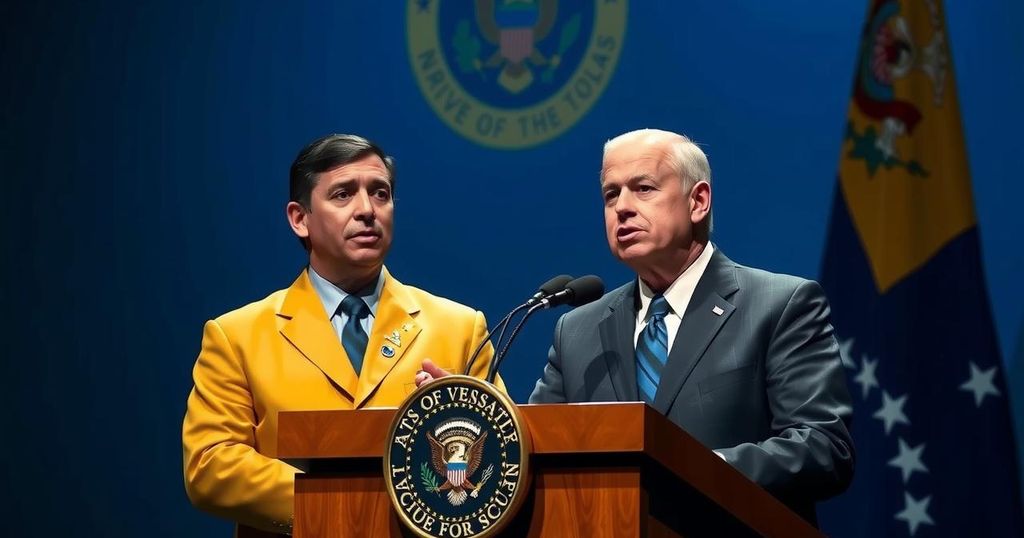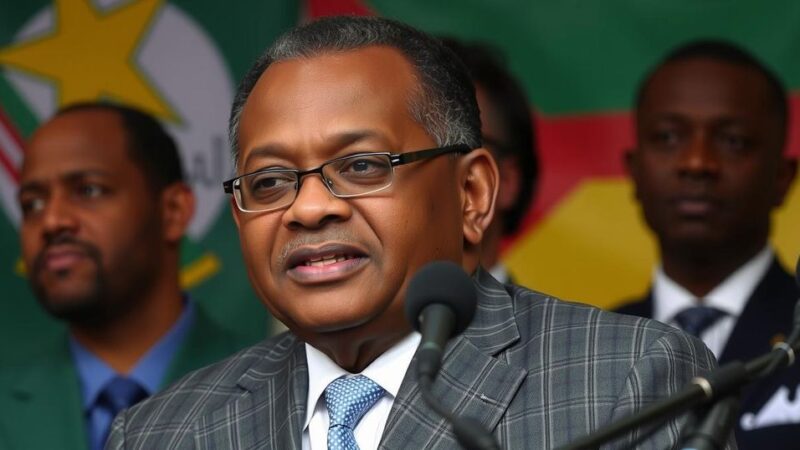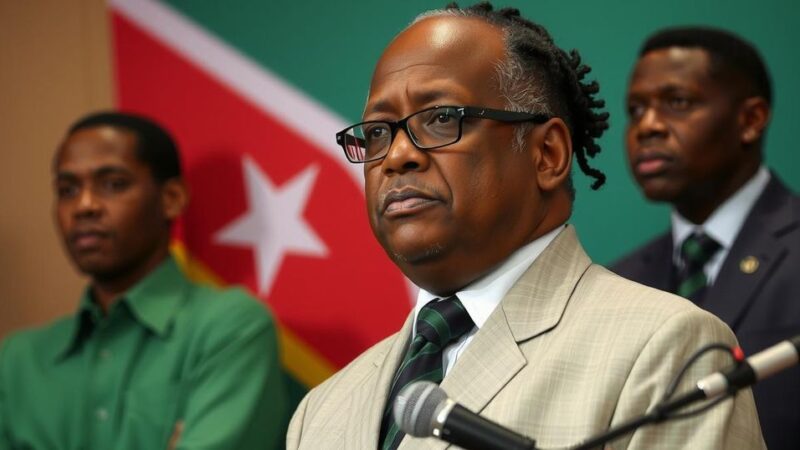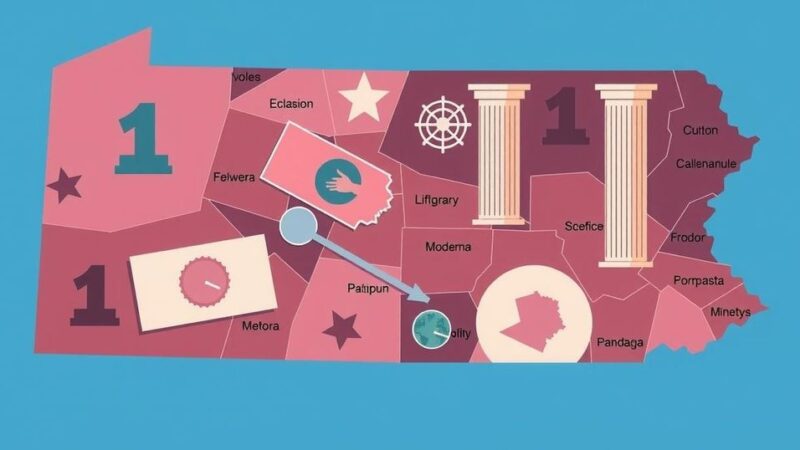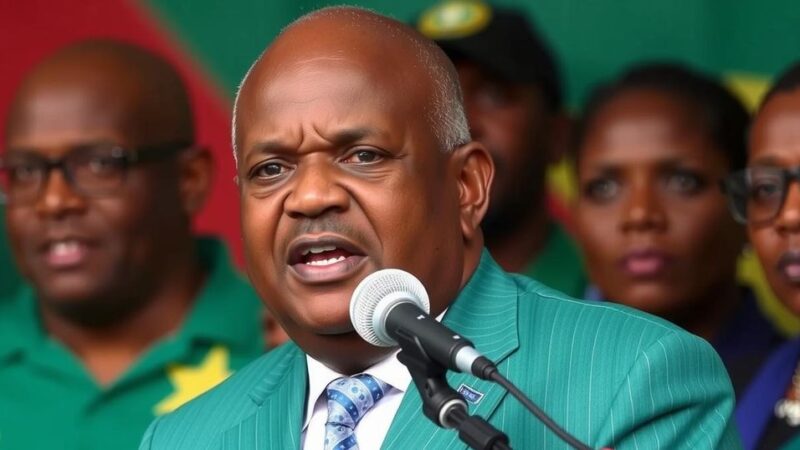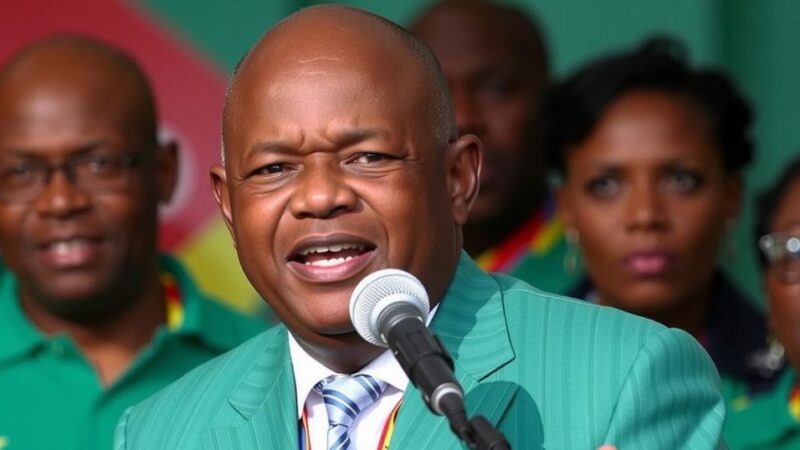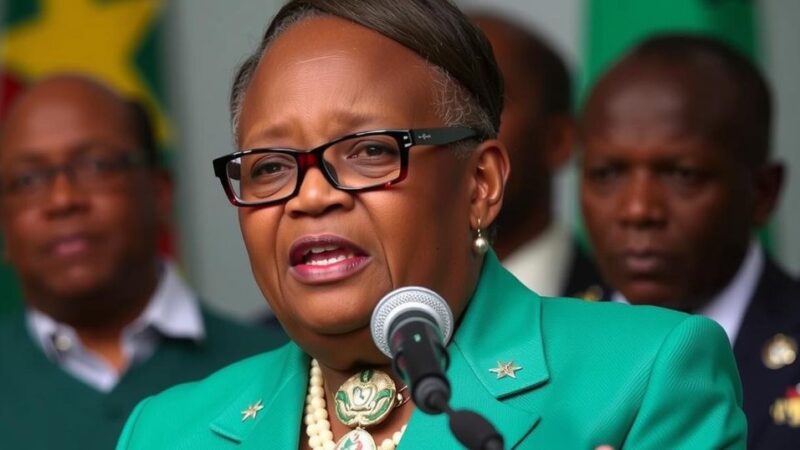The United States has imposed new sanctions on over 20 Venezuelan officials aligned with President Nicolás Maduro, aimed at pressuring him to accept the results of the recent presidential election. Key targets include military personnel as well as governmental leaders. This action comes alongside the U.S. recognition of Edmundo Gonzalez as the president-elect following the disputed vote, reinforcing the commitment to democracy in Venezuela.
On Wednesday, the United States implemented new sanctions targeting over 20 officials associated with Nicolás Maduro’s authoritarian government in Venezuela. This action aims to pressure Maduro to acknowledge the results of the July presidential election. Senior U.S. officials expressed optimism that these sanctions will encourage Venezuelan officials to defect from Maduro’s regime and aid in facilitating a transition to democracy. The sanctions particularly focus on military figures within Venezuela’s security forces, including the Bolivarian National Guard and Police.
Among those sanctioned are Anibal Coronado, the recently appointed chief of staff, Communication Minister Freddy Ñañez, and intelligence director Alexis Rodriguez. The U.S. maintains its broader sanctions regarding oil while allowing certain companies, like Chevron, to operate under specific licenses, although these arrangements are regularly reassessed. This announcement arrives shortly after the U.S. recognized Edmundo Gonzalez, a leader of the opposition, as the legitimate president-elect after the contested election held on July 28.
In a statement made during the G20 summit, Secretary of State Antony Blinken remarked, “The Venezuelan people spoke resoundingly on July 28 and made Edmundo Gonzalez the president-elect. Democracy demands respect for the will of the voters.” Additionally, a senior official noted, “We’re undertaking these actions with respect to Venezuela as part of the Biden administration’s engagement in advancing democracy in Venezuela and also holding the Venezuelan regime and regime actors accountable for practices that include political repression.”
The U.S. Treasury Department has sanctioned many of Venezuela’s cabinet members since the onset of its crisis in 2017. Maduro himself has faced sanctions since July 31, 2017, and is charged with serious crimes including drug trafficking. In a bid to capture him, U.S. authorities have offered a reward of up to $15 million for information leading to his arrest or conviction.
The sanctions imposed by the United States on officials affiliated with Nicolás Maduro’s regime are part of a larger strategy to promote democratic governance and accountability in Venezuela. Following the disputed presidential election in July, the U.S. took steps to recognize the opposition’s claim to leadership. The Venezuelan crisis, aggravated by economic mismanagement and widespread human rights violations, has prompted international condemnation and sanctions against those supporting the Maduro government. This context is vital for understanding the United States’ efforts to encourage a peaceful transition to democracy in Venezuela.
In summary, the United States has enacted new sanctions against Maduro-aligned officials to compel recognition and adherence to the results of the recent presidential election. This initiative is part of a broader strategy to foster democracy in Venezuela and hold the Maduro government to account for its actions against the populace. The recent developments underscore the U.S. commitment to promoting democratic values while addressing the ongoing crisis in Venezuela.
Original Source: www.cnn.com

